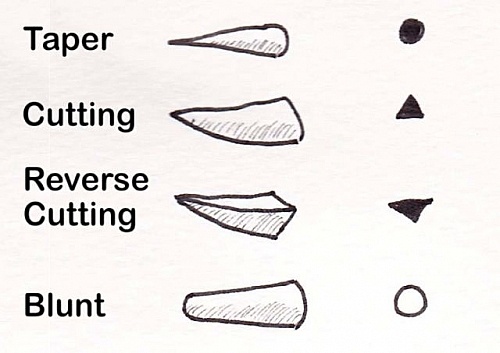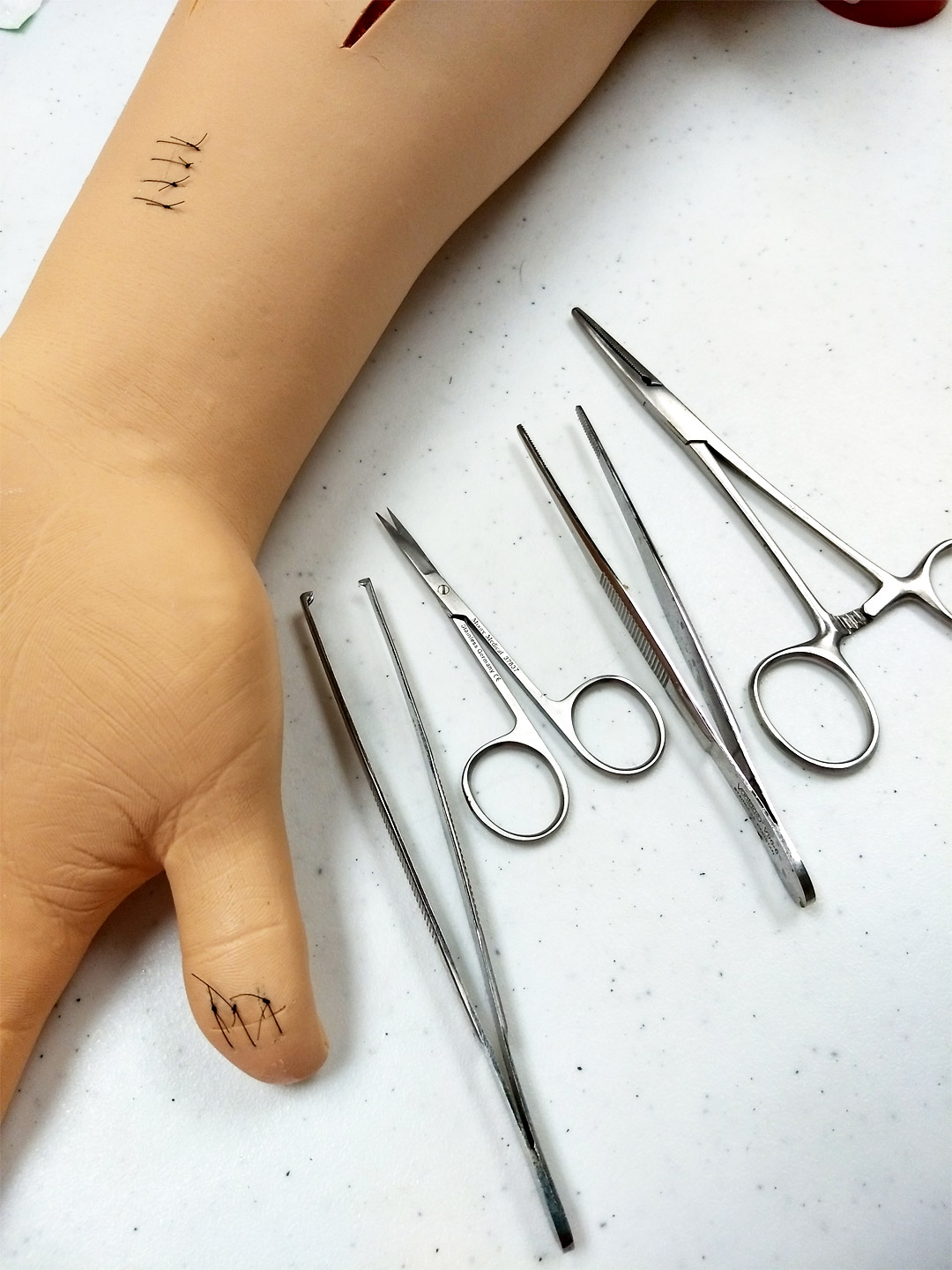What is the difference between minor and major surgery? Minor surgery is any procedure that can be done with local anesthetic, whereas major surgery requires general anesthesia. For example, removing ingrown toenails and stitching a wound would be minor surgeries that are performed in a doctor’s office, whereas an appendectomy and knee replacement surgery require general anesthesia and are not within the scope of naturopathic physicians.

Image source: Jotscroll.com
Last week in minor surgery class, we learned the difference between the types of suture needles: tapered, cutting, and reverse cutting. Tapered needles are used on delicate tissues that are easy to penetrate, like the intestines or blood vessels. Conventional cutting needles have a triangular tip, making it easy to penetrate tough tissues. Reverse cutting needles have an up-side-down triangular tip and are used on skin.
We watched a video that showed us proper technique, and it looked very rhythmic and easy. Then we got to practice suturing wounds on realistic-looking fake arms! It wasn’t as easy to make the knots as efficiently and smoothly as it looked in the video; it is an art that requires practice and patience.

Each week we will practice suturing and also learn more about other minor surgery office procedures such as skin biopsies. Having hands-on learning opportunities in addition to lecture is exciting.




0 Comments